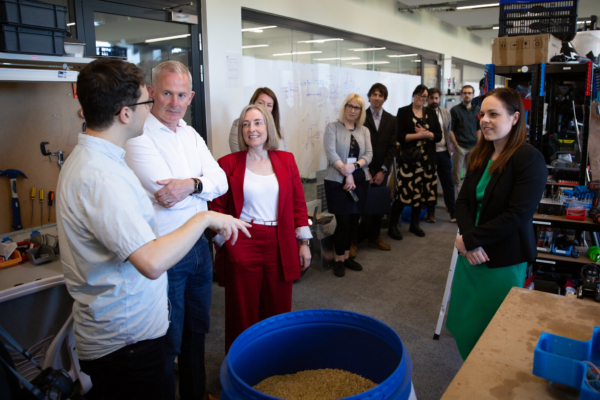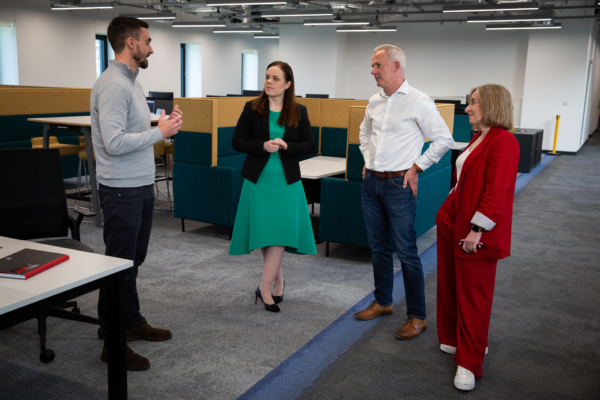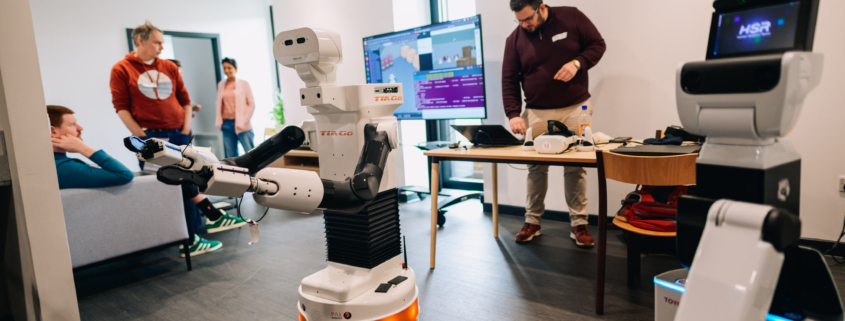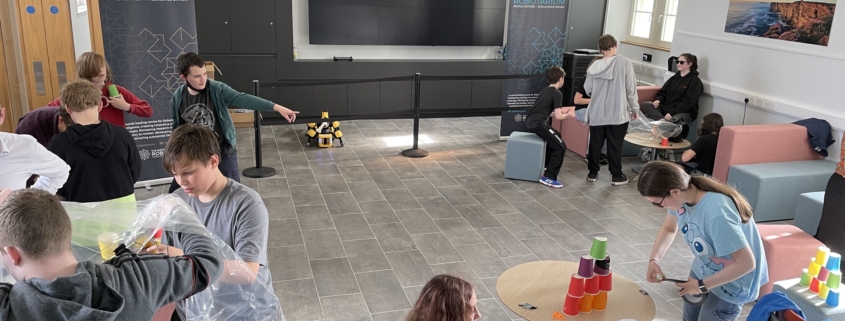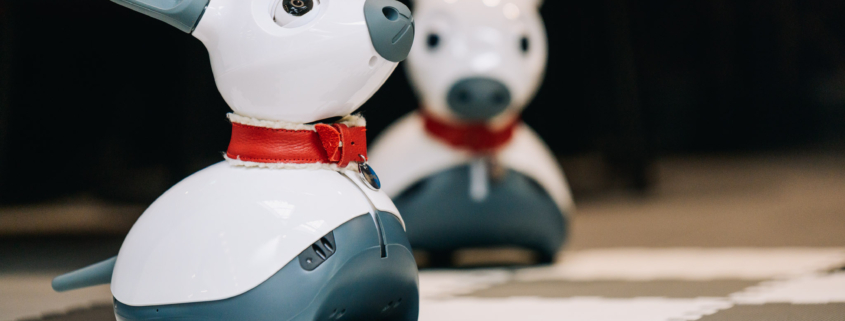National Robotarium accelerates industry development of wind farm robotics
The National Robotarium is supporting the development of new artificial intelligence and control systems that could enable underwater robots to operate autonomously in turbulent seas, potentially revolutionising maintenance and repair tasks for offshore wind turbines.
The UNITE project, an EPSRC Prosperity Partnership programme led by Heriot-Watt University in collaboration with Imperial College London, is creating new artificial intelligence and control systems in partnership with geo-data specialist Fugro and Heriot-Watt University spinout Frontier Robotics, supported by the National Robotarium, the UK’s centre for robotics and AI.
“The UNITE project was co-created with Fugro to develop the next generation of autonomy-enabled robotics solutions for offshore inspection and maintenance. We are especially interested in subsea inspection and manipulation in dynamic environments where existing solutions cannot be used.”
– Yvan Petillot, Professor of Robotics at Heriot Watt University and National Robotarium academic lead
“Our trials are showing promising results in enabling underwater robots to maintain stable contact with offshore structures in challenging conditions,” said David Morrison, Project Manager at the National Robotarium. “If successful, the technology could transform offshore wind maintenance, reducing fuel consumption of maintenance missions by up to 97% – from 7,000 litres per day to just 200 litres. This could significantly lower both operational costs and the carbon footprint of maintenance.”
The project demonstrates the National Robotarium’s role in bringing together established companies and emerging innovators. Through its laboratories and testing infrastructure, the facility enables rapid development and validation of commercial solutions. The technology being developed could reduce standard data collection time from three weeks to just three hours.
“With the exponential growth of offshore infrastructure, we need to look towards deploying more AI, robots and autonomy to enable the industry to take advantage of new technologies to work even more efficiently and to scale with the global demand,” said Jonatan Scharff Willners, CEO of Frontier Robotics. “It is great to work closely with Heriot-Watt University, the National Robotarium and Fugro to tackle these highly important problems, which are key components if we want to transition to renewable energy using a greener and more sustainable supply-chain.”
Mark Bruce, Global Product Manager of Next Generation ROV Systems at Fugro, said: “Our USVs and eROV’s deliver unmatched efficiency, hugely reduced environmental impact, and most importantly they eliminate human risk offshore by removing people from harm’s way. Our remote operations centres have been operating for ten years, during which time we have refined and improved our solutions.”
The National Robotarium provides companies with access to laboratories, testing facilities, and specialised equipment, alongside support for commercialisation. Companies working at the facility can connect with researchers, access funding opportunities, and engage with the UK’s broader robotics ecosystem.
The £1.4 million Underwater Intervention for Offshore Renewable Energies (UNITE) project is led by Professor Yvan Petillot from Heriot-Watt University, with Dr. Sen Wang leading Imperial College London’s contributions, and is funded through an EPSRC Prosperity Partnership, part of UK Research and Innovation.
The National Robotarium welcomes contact from energy companies and technology providers interested in exploring the commercial applications of this technology. Email nationalrobotarium@hw.ac.uk or contact our Business Development team.


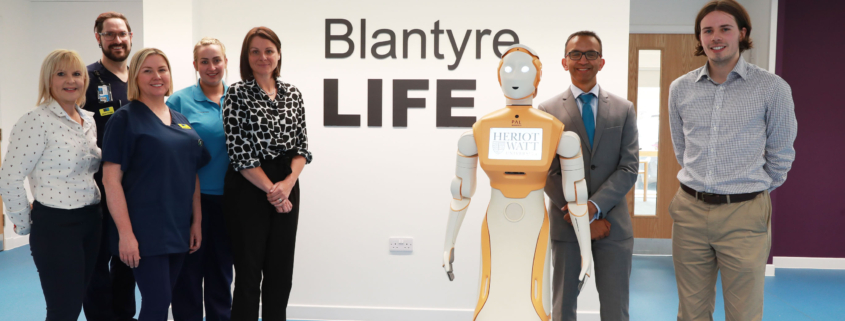
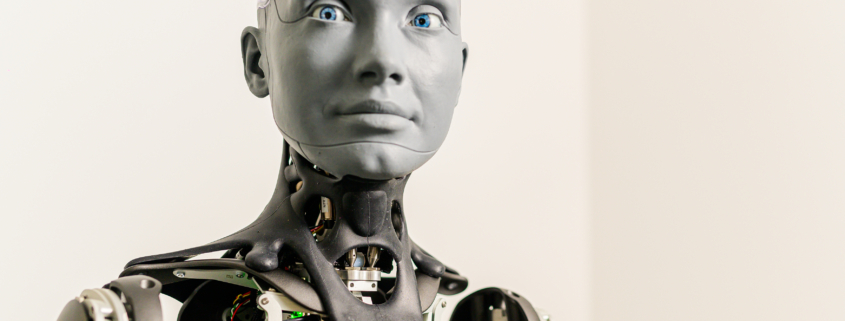
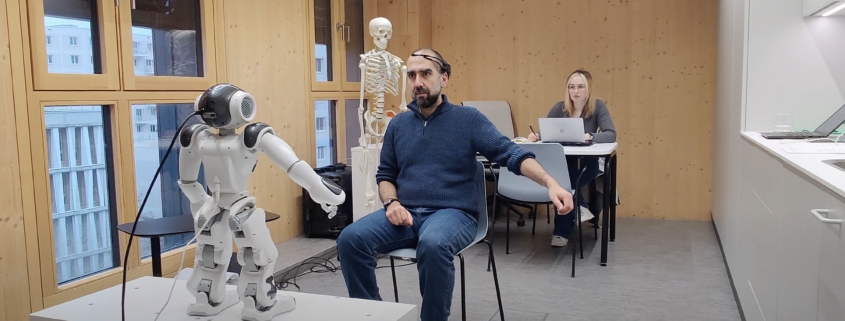
 Adobe stock
Adobe stock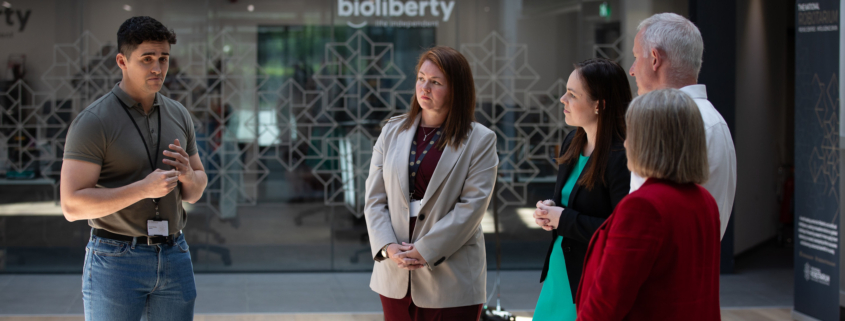 Scottish Government Flickr
Scottish Government Flickr